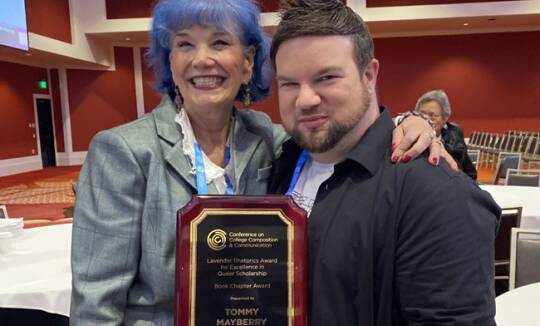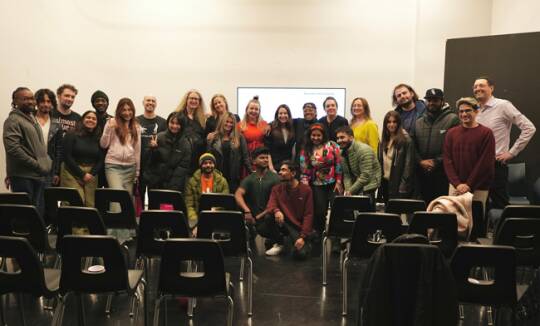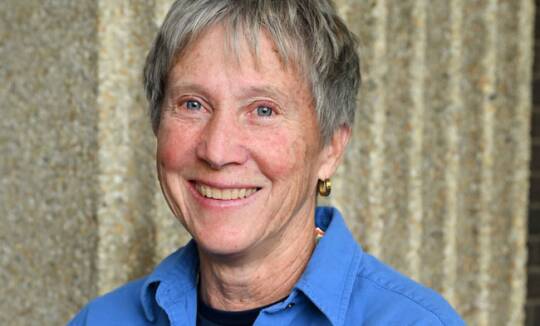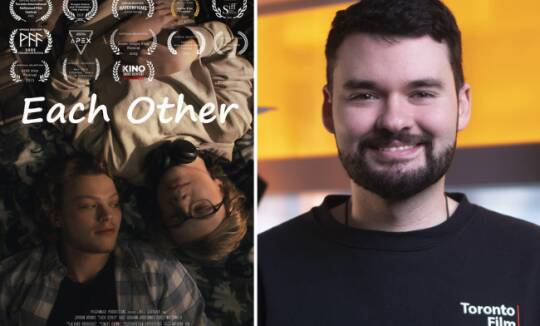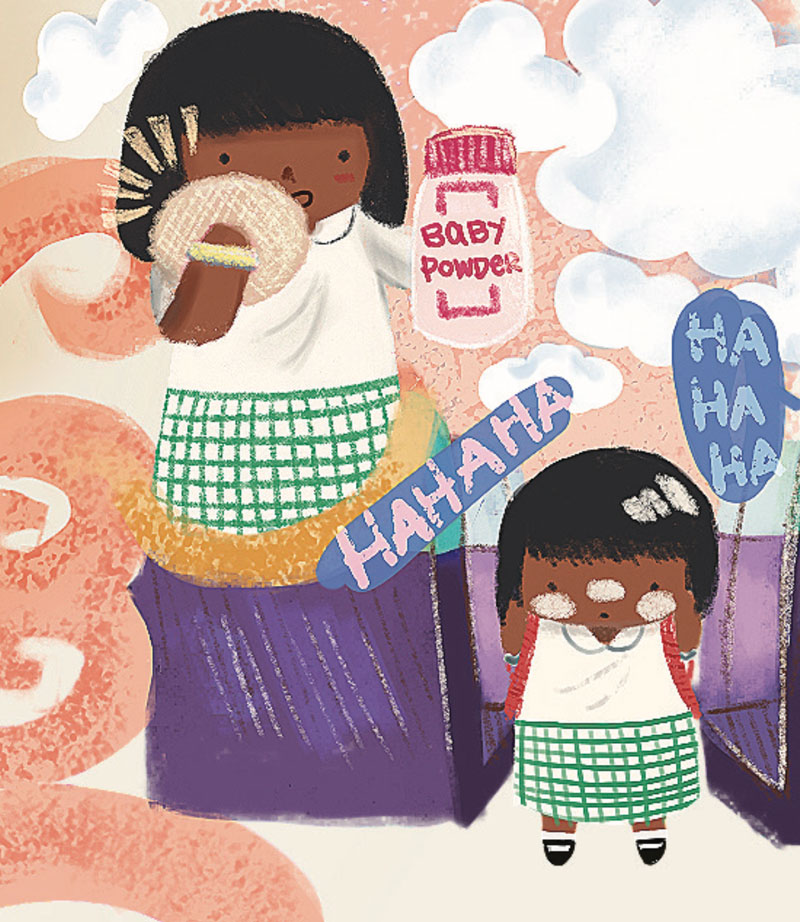
“We’re all worthy of being loved. It doesn’t matter what your skin tone is, you are beautiful, and you are loved.”
That is the message Marjorie Frenette hopes readers take away from her recently published children’s book, What’s Wrong with My Skin?
The book tells the story of a dark-skinned Filipina girl named Ligaya, a word meaning joy. Frenette, a first-time author and Master of Arts in Counselling Psychology student, says the book is inspired by her own experience as a child in the Philippines.
“Even the illustrations, that’s most of my childhood,” she remembered. “I loved playing in the river and just being on my own, playing endlessly outside. That’s how I grew up and I share that with Ligaya.”
Ligaya is a kid who loves to play outside, but one day she notices that her friends don’t want to stay in the sun with her for too long, because they are worried about their skin getting darker.
“Where she comes from, having dark skin has a negative connotation,” said Frenette. “You’re going to get teased if you have dark skin. Ligaya struggles to understand why everyone is worried about darker skin, because she feels like her world is outside and she just wants to play.”
What’s Wrong with My Skin? is a book “about trying to embrace who you are and understanding that nothing is wrong with your skin.”
Frenette said that growing up in the Philippines, colourism was a part of everyday life and she saw many commercials and beauty campaigns that advertised skin-whitening products.
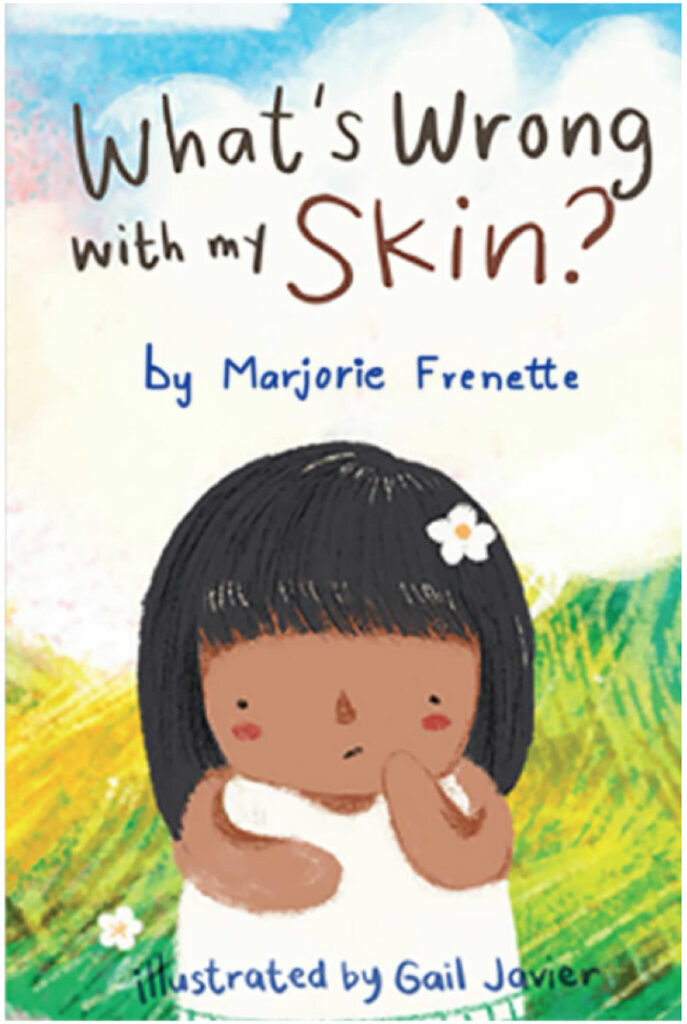
“We were colonized for more than 300 years,” she reflected. “And then, after that, Americans came, and Hollywood came. So, of course you’re going to see a lot of people from western countries in our media, but you’ll see less representation of you.”
“But from a kid’s perspective, what is that telling them?”
The impact of these white, western beauty standards, she said, at times made her question whether she was pretty enough, or worthy.
“It’s very important to love yourself first,” Frenette affirmed. “Though some people don’t really have that tool, because it wasn’t modeled for them.”
“And that’s the crucial part,” she continued. “In the book there’s a teacher who modeled this to Ligaya. This one adult who influences you in a way to appreciate who you are and love yourself.”
For Frenette, this one adult was her mother. As a kid, she would tell her mother that she was envious of her lighter skin and wished that she, too, had a pale complexion. And her mother said something that has stayed with her ever since:
“She told me I resembled my dad so much,” she reflected. “And he passed away when I was three years old. So, I feel like I’m honouring my dad and my presence makes my mom happy, because I look so much like my dad.”
When Frenette reflects on her past, she says she feels gratitude for lessons like the one her mother gave her; they have helped shape her focus and give her a sense of direction.
While studying journalism in the Philippines, one of her mentors instilled in her another lesson that she says greatly influenced her perspective.
“This mentor told me that when you write, it has to be not just who, what, where, when and how – it has to also be why,” Frenette remembered. “I think it’s very important that you write for a purpose; that you use your skill to be a voice for people who can’t speak for themselves.”
This purposeful writing is something she says has been integral to her studies at Yorkville University.
“I’ve learned in the MACP program to always show up for clients and let them know they’re not alone in their experience,” she said. “And also the that the things you know, your worldview and your assumptions, they developed when you were young, when those core memories started forming.”
“I’m hoping we can update those things,” she asserted. “It doesn’t have to be another generation of hurt; we don’t have to transfer what we felt before.”

Frenette said she hopes that the book’s readers will see in Ligaya’s story a piece of themselves reflected back.
“If someone reads that book,” she said, “they will know they aren’t alone with that experience and that someone told their story.”
It’s about to be a busy time for Frenette, as she juggles completing the MACP program, promoting her book and, most importantly, welcoming a brand-new child to the world. She is due to give birth at the beginning of October.
“You know, I’m going to be a mom soon,” she continued. “I just want to do something good and hopefully someday when my kid has her own brain and way of thinking, at least this world will maybe be a little better.”
“Whatever happens with my book, I’m proud of what I achieved writing it.
What’s Wrong with My Skin? is available to purchase via Amazon or Barnes & Noble.

